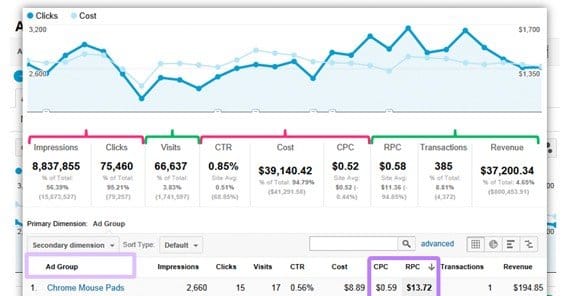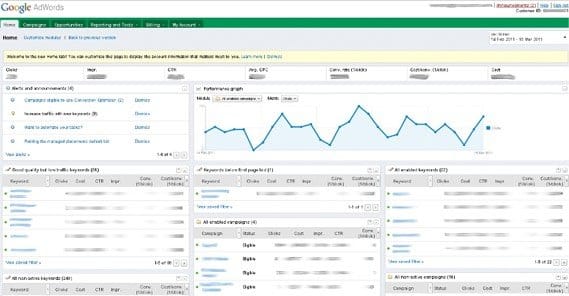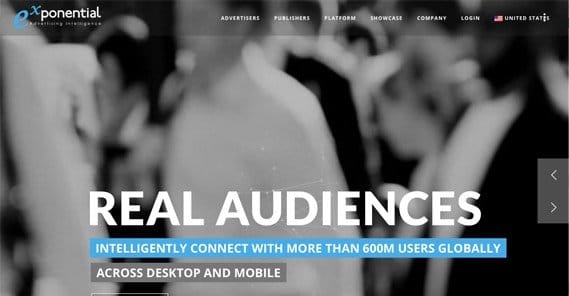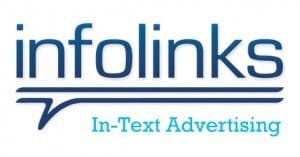PPC or PPM: Which Are the Most Effective Ads?

PPC and PPM are two types of paid advertising that lead to a lot of confusion amongst novice marketers. It doesn’t help that they’re also known by a dozen other names, like CPC and PPI. Which is which, what’s the difference, and which is better?
PPC and PPM: The Differences
PPC is Pay Per Click advertising. It’s really very simple to understand. You have a link, which you make an ad around. This ad displays on a site like Facebook, in Google’s sponsored ads, or on a blog’s sidebar. It shows for free, giving you potentially unlimited free exposure.
Obviously the payment has to come in somewhere, and that’s the PPC. When a user clicks on your ad link and visits your site, that click is tracked. You are charged for that click, at whatever the going rate for clicks happens to be in that niche. This can change from month to month, though you usually now what it will be when you sign up for a program.
PPM is a little different. PPM stands for Pay Per Mille. The mille is Latin, a word that means “thousand.” Not coincidentally, this is why M means 1,000 in Roman Numerals.
In this case, the M is referring to a thousand impressions. The process is the same; you have a link and you put it on display, through an advertisement, such as on Facebook or Google. However, rather than infinite free display until your ad is clicked, the ad registers each view. You pay a fee for every thousand views.
When PPC is Better
PPC is often considered the better type of advertising, and for one reason; it doesn’t reward spammers. PPC has very aggressive filters to make sure that the people clicking the ad are legitimate. Otherwise, the person running your ad would want to click it, so it looks like their site passes a lot of traffic, earning them a commission for those clicks.
PPC also rewards advertisers with good landing pages. You pay somewhere between 50 cents and $5 per click, so you want to convert as many of those users as possible. You’re waiting until a click comes along, and you’re trying to capture that click and turn it into a paying customer.
You can also consider PPC to be more rewarding to businesses with poor advertising. With PPM, they can run an ad that isn’t attracting attention, and they’ll still have to pay for the views they get. With PPC, the ad can run indefinitely for free until it earns clicks. Of course, realistically ads that don’t get clicks don’t last long in a PPC program, so that’s not an advantage you can make use of.
When PPM is Better
PPM is better in situations where your ad is very compelling. You’re paying a flat fee for 1,000 views, which is typically under $1. Therefore, you want as many people out of those thousand to click your ads as possible. Even one click tends to be cheaper than an equivalent cost for a click in PPC.
The idea with PPM is that you want to maximize your clicks so that you’re paying less than you would be for a PPC campaign. This isn’t all that hard to do. The problem you run into is, again, spammers.
See, PPM is largely relegated to sites that have some intention of buying traffic or sending robotic traffic to game their ads. They make money when the ads are viewed, so they send views that way. They buy traffic cheaper than the payout for that traffic. PPM providers and networks push to filter out fake views, but they can’t get everything. Out of 1,000 views, you might find that only 100 or even fewer are actual real people.
The main way to alleviate this problem is to make sure you’re only signing on with reputable PPM networks. Good networks will ban sites that try to game the view counts, so you can be more assured that your views are coming from real people. It’s still a risk you run, however.
Which Should You Use
I recommend avoiding PPM for the most part. The costs are low, but so are the returns. These days, it’s very hard to find a valid PPM provider. Many of them only exist to hook up gullible sites willing to pay for advertising with black hat SEOs that run thin sites, implement ad code, and send bot traffic to it. The black hat makes money from the “views,” the network takes its cut, and the advertiser loses their money. There’s no recourse; the network virtually never responds to customer complaints and uses aggressive reputation management to remove negative reviews and make themselves look more legitimate.
PPC in general is more expensive, but in exchange for that expense, you get much more guaranteed viable traffic. Sure, you’ll still get shady networks trying to refer bad traffic your way and take your money, but you can usually avoid that just by avoiding the third party networks. Go directly through Google with AdWords, or through Facebook with their ads.
To counteract the cost of PPC compared to PPM, you can take steps to optimize your ads and your landing page. You want to do three things. First, you want to use strategies to lower the cost per click of your ads. Second, you want to make your ads compelling such that they bring in more clicks. Third, you want your landing page to be more compelling so that users who click then convert. Remember, each user who clicks but doesn’t convert is money you lose; each user who converts is money you gain.
To lower the cost per click, you’ll need to target less competitive niches and keywords. You’ll also want to increase your quality score on sites that track it.
Making your ads more compelling is the subject of entire blogs; I can’t exactly give you winning information in the space of a paragraph. Needless to say, a lot of it comes down to knowing your audience and knowing a bit about psychology.
As for making your site convert more, that’s the subject of conversion rate optimization. A better landing page, a better product, better offers; they all matter.
Another thing you can do is track the users who clicked but didn’t convert. These are targets for remarketing, which you can do through Facebook and Google both. They were interested enough to click, but something prevented them from converting on the spot; utilize this to target them later, giving them another opportunity, possibly with an exclusive deal to get the conversion.
 ContentPowered.com
ContentPowered.com






